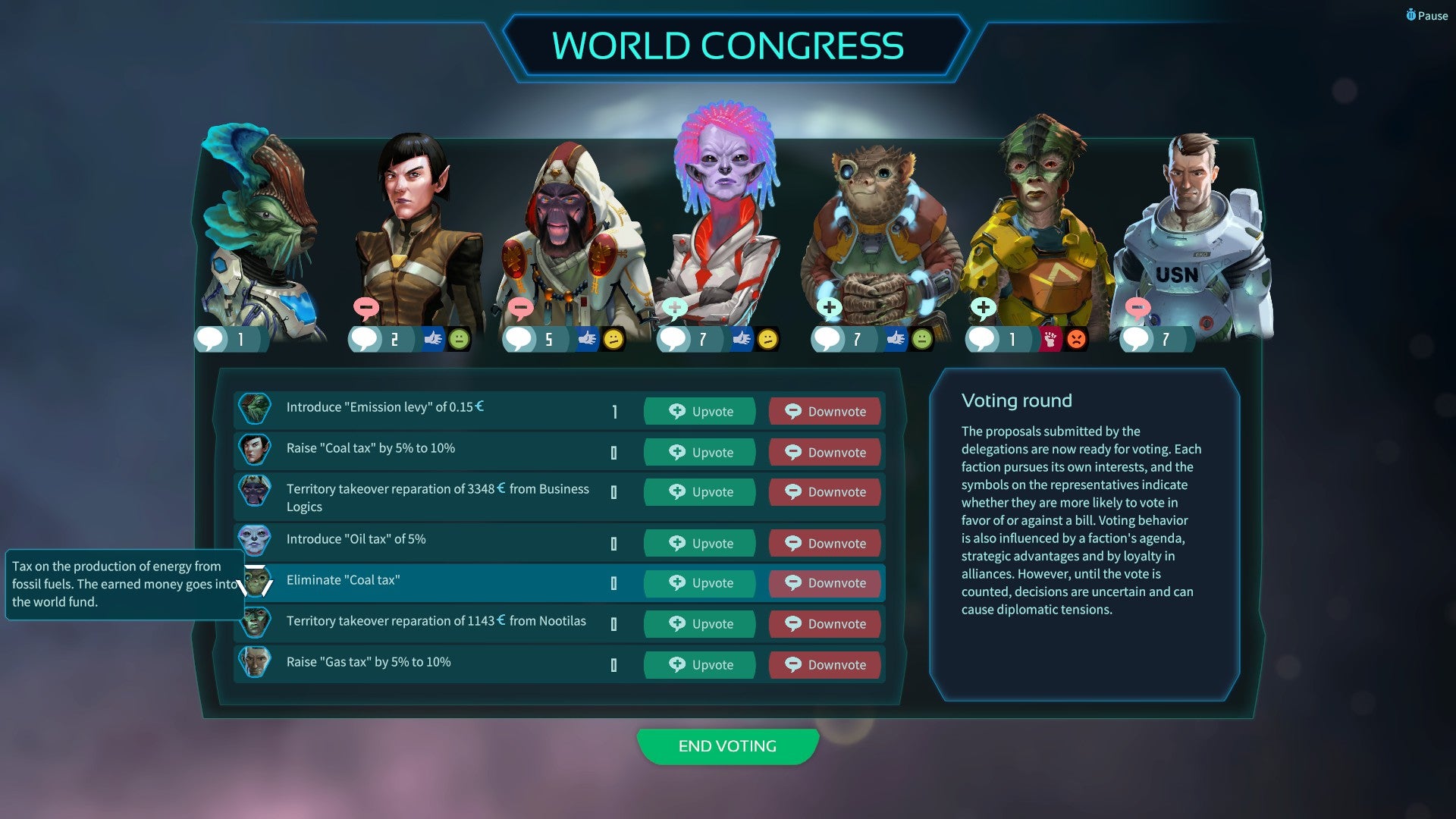Developer: Serious Bros. Publisher: Serious Bros. Release: Out now From: Steam, GOG, Humble, Microsoft Price: £23/€25/$25
Imagine Earth isn’t entirely about the environment. And it needn’t be, given that you’re working for a business colonising one of countless worlds. Who cares if you destroy a planet when you can easily skip over to another one? You can do that. You can be pretty rapacious. But I find it more fun to be the oceanic aliens, because they start out with lots of seabase technology, so when your rivals accidentally melt the ice caps you can mostly just laugh at them. Imagine Earth is never wholly mellow, but never quite stressful either. Its campaign is faintly reminiscent of Startopia (though without the humour), focusing on each aspect of the game in turn over a series of worlds. After a few of those, you’ll find jumping to a custom game against five AI competitors a bit nerve wracking, especially when they start stealing your territory. It could use some time controls to give me a bit more thinking room (though you can pause and still do a lot), and it definitely needs a few minor quality of life tweaks like ‘upgrade all’, or some more visually distinct buildings, but I think I love it a bit. Since win conditions, rules and the planets themselves are all tweakable, you can find a balance you like too. It has a good vibe, with the default human corporation feeling near utopian in their desire to be sustainable and fair, but there’s a range of AI attitudes if you’re feeling more capitalistic. It works by having you place little triangular buildings. A living zone, then a farm and a mine and power plant, but even by this point you could have gone in several directions. That farm could be a fishery, the mine a logging camp, the power plant coal, wind, uranium, burning the forests, or more. Harvested goods can be sold to rivals, or to traders at a starport, or worked into items to fertilise a field or instantly upgrade a city or take over a watchtower. Which you’ll build and what, if anything, you manufacture, depends on what you’re willing to pay a licence for, but also the lay of the land and your long term plans. Space management is key, as you harvest from neighbouring triangles, and population growth is achieved by upgrading adjacent living districts in an Endless Legend fashion. More people means more licences and permissions from your bosses, to expand and use technology, of which there are dozens. And when rivals are in play, you periodically convene to vote on global laws, like establishing a fund to subsidise wind farms, or voting for a coal tax to undermine a neighbour. And then they go and flood the planet anyway, the muppets. Not that I was really that upset, since I’d already been building around an ancient gaian temple specifically so I could power it up and flood their coastal industries anyway.
